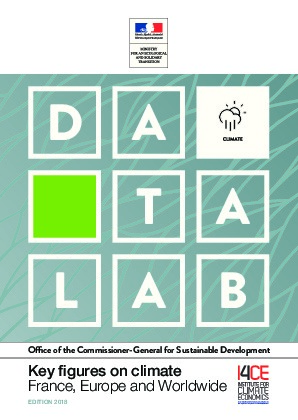Key figures on Climate
On the opening of the 23rd Conference of the Parties on Climate Change (COP 23) which is held in Bonn from 6 to 17 November 2017, I4CE-Institute for Climate Economics and the French Ministry of the Ecological and Inclusive Transition are pleased to present the 2018 edition of Key Figures on climate.
Some key figures from the 2018 edition:
– 2016 was globally the warmest year since 1850, with an average temperature increase of 1.1°C above preindustrial levels;
– CO2 emissions per capita in China are now higher than in the EU 28, with the territorial approach (7.6 tCO2/capita in China against 6.8 tCO2/capita in the EU 28).
– However, with the footprint approach, emissions per capita in China are 20% lower than in the EU 28 (6.6 tCO2/capita in China, against 8.3 tCO2/capita in the EU 28);
– In the European Union, greenhouse gas emissions (excluding emissions from land use, land use change and forestry) increased by 0.5% in 2015 compared to 2014. Between 1990 and 2015, they decreased by 24%;
– In 2017, 15% of greenhouse gas emissions are covered by an explicit carbon price mechanism.
This small-format publication summarizes the basics to better understand climate change challenges. Figures and graphs illustrate its causes and impacts, as well as mitigation measures. In particular, detailed statistics are provided on greenhouse gas emissions and on observed trends in the world, in Europe and in France. This publication has been produced for both the general public and the expert who needs a summary close to hand.
The territorial approach accounts for greenhouse gases physically emitted inside a country
The carbon footprint approach accounts for emissions from final domestic demand in the country. It includes emissions from imported goods in addition to direct emissions from households (housing and cars) and from domestic production (excluding exports).

